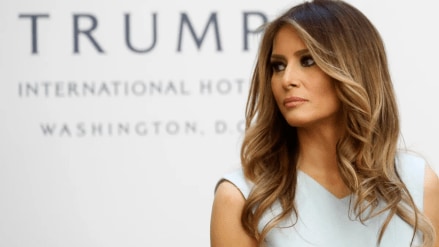Melania Trump’s immigration journey is once again under scrutiny as questions resurface about how she qualified for the EB-1 visa, often dubbed the “Einstein visa.” Granted in 2001, this green card is typically reserved for individuals with internationally recognized talent—such as Nobel laureates, Olympic medalists, or top researchers—sparking debate over whether the former model met the high standards required.
What Is the Einstein Visa?
The EB-1 visa is a US employment-based green card designed for people who can demonstrate “extraordinary ability” in fields like science, arts, education, business, or athletics. Applicants must prove sustained national or international acclaim and either hold a major international award or meet at least three of ten strict criteria laid out by US Citizenship and Immigration Services (USCIS). These include published work, a high salary compared to peers, or a leading role in distinguished organizations.
Though the standards are rigorous, the evaluation process is subjective. Immigration officers weigh the evidence submitted, which has led critics to argue the system can be inconsistently applied—or even exploited—with enough legal guidance.
In Melania Trump’s case, then known as Melania Knauss, she was a Slovenian model working in New York when she applied for the EB-1 visa in 2000. The application was approved in 2001, despite her relatively modest modeling career that lacked major awards or international acclaim. While she had appeared in several magazines, critics argue her profile did not match the elite intent of the EB-1 program.
The controversy was recently reignited by US Congresswoman Jasmine Crockett, who publicly questioned whether Melania’s case is a true example of merit-based immigration. The First Lady’s visa approval has also been compared to other lesser-known recipients, including glamour models and niche artists who successfully framed their accomplishments to meet the program’s standards.
Experts say the EB-1 can still be awarded to those who aren’t widely famous, provided they can prove excellence in a narrow domain. In Melania’s case, her legal team may have highlighted her media exposure or uniqueness within her modeling niche to build a compelling case.
The debate is further complicated by Melania’s later use of “chain migration” to sponsor her parents—an immigration pathway that her husband, former President Donald Trump, has publicly criticized and sought to restrict during his administration.
With only about 40,000 EB-1 visas issued annually, Melania’s case has become a flashpoint in discussions about fairness, privilege, and how merit is defined in America’s immigration system.
